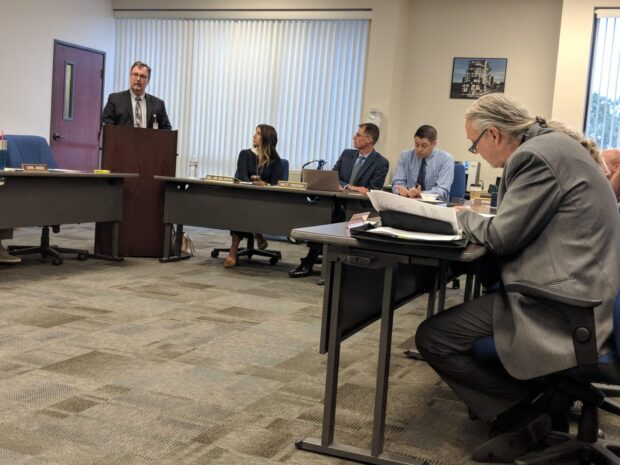The Idaho Office of School Safety & Security will finish its first round of triennial school safety assessments about six months behind schedule, office manager Brian Armes told advisory board members on Tuesday.
The office, tasked with analyzing the security of more than 700 school buildings across the state, is roughly 10 percent behind schedule, Armes said — mostly because their services are in high demand.
“It’s no small secret that we’ve had a fairly active year for social violence in the U.S.,” Armes told board members. “We have come into this year with a lot of demand.”
In the 2018-2019 year, staff members put in nearly 2,000 hours of training and consulting schools on safety, in addition to their school assessment duties. That’s twice as many hours as the year before, Armes estimates, and about four times as many as the office’s first year of operation in 2016-2017.

In addition to analyzing existing buildings, office staff have been helping charter schools evaluate the safety of potential school sites, developing a statewide tip-line and helping craft a set of common emergency command procedures for schools.
“It’s not like we’re doing things that are off mission,” Armes told Idaho Education News. “The good news is people know we’re out here, we are willing to help them…the downside, of course, is that we didn’t get to all of the schools as anticipated.”
Armes expects the first round of triennial security assessments will be finished by the end of 2019.
Next year, Armes told board members, the office is hoping to pick up an additional security analyst to help with the workload. Armes warned board members on Tuesday that he had requested an additional security analyst — even though the Governor has asked state agencies to keep their budget to a minimum this year.
Armes’ plan is to cover the cost of the staff member with funds from a federal grant, he said. However, to meet state deadlines, he had to ask for the new position before he knew whether that grant was approved.
Armes’ ask was sanctioned by a liaison to the governor’s office, he said, and the hire is contingent on getting federal funds.
“I think everyone knows, everyone has heard…Idaho has not had the revenue anticipated,” he said. “As we’re going into this next legislative session, I think’ we’re all anticipating a very conservative financial budget.”
